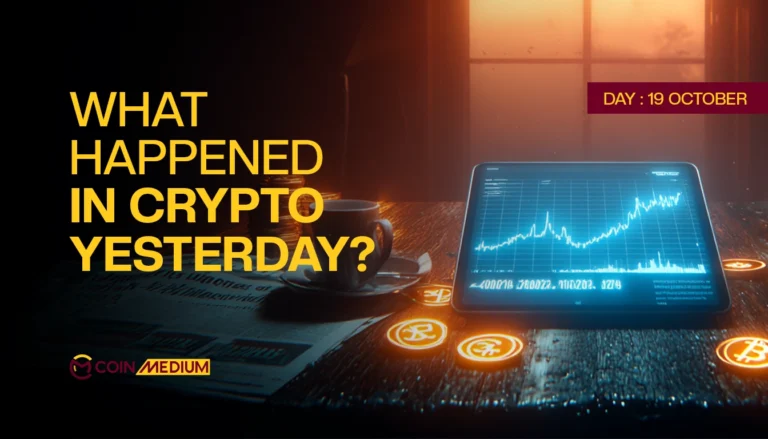Ukraine has partnered with Binance, a leading global cryptocurrency exchange, to establish a national strategic Bitcoin reserve, according to Yaroslav Zhelezniak, First Deputy Chairman of the Ukrainian Committee on Finance, Tax, and Customs Policy.
- Binance: The world’s largest cryptocurrency exchanges, offering trading, custody, and blockchain services. It has partnered with governments on crypto adoption.
- Bitcoin Reserve: A strategic holding of Bitcoin by a government, intended to hedge against currency risks and support economic stability.
- Virtual Assets Law: A proposed regulation in Ukraine to define and manage crypto holdings and platforms within the national legal framework.
Push and Pull of Crypto Legislation
Zhelezniak discussed the legislative initiative in February 2025, highlighting plans to enable the creation of cryptocurrency reserves. “We will soon submit a draft law from the industry allowing the creation of crypto reserves,” he stated at the time. He has now confirmed that a related bill is currently being drafted and will be submitted soon.
In April 2025, a key committee in parliament agreed on a draft law about virtual assets. But the law was later pulled back, reportedly at the request of the President’s Office. The National Securities and Stock Market Commission denied responsibility for the withdrawal but submitted 80+ amendments to the draft.
Why is Ukraine considering a crypto reserve?
Ukraine counts on holding crypto in its national reserves to hedge against currency volatility and economic instability, especially in light of the ongoing conflict with Russia. This move could provide a safeguard for the country’s financial system during uncertain times
Ukraine is not the first country to consider holding cryptos as part of its national reserves. El Salvador, the first nation to adopt Bitcoin as legal tender in 2021, currently holds over 5,700 BTC, valued at more than $360 million as of May 2025, according to NayibTracker. The United States also holds significant amounts of Bitcoin over 200,000 BTC mostly seized from criminal cases, making it one of the largest institutional holders of the cryptocurrency, according to data from crypto analytics bitcointreasuries.
On the other hand, there is no official confirmation that Russia maintains a national cryptocurrency reserve. While Moscow has legalized crypto mining and is exploring the use of digital assets for cross-border transactions, it has not publicly disclosed any holdings of Bitcoin or other cryptocurrencies as part of its national reserves.
What made Binance Ukraine’s top choice for a crypto partnership?
Binanace has always shown great support pro-Ukraine during the war with Russia. The exchange took steps to support Ukraine through financial aid and technological assistance.
In February 2022, Binance pledged at least $10 million to aid Ukraine’s humanitarian efforts. This donation was distributed among organizations such as UNICEF, UNHCR, and People in Need to assist displaced children and families.
Additionally, Binance launched the “Ukraine Emergency Relief Fund,” a crypto-first crowdfunding platform that drew significant global attention and high traffic, enabling individuals worldwide to donate cryptocurrencies in support of emergency efforts in Ukraine.
Beyond financial contributions, The platform facilitated the opening of cryptocurrency accounts for Ukrainians, providing them with access to digital financial services during the conflict. This initiative aimed to offer financial stability and accessibility amidst the disruptions caused by the war.
In April 2022, the exchange announced it would deactivate accounts of Russian nationals and residents holding crypto assets exceeding €10,000, aligning with European Union sanctions.
How easy is it for Ukraine to launch a crypto reserve with Binance?
At the time the Ukrainian President Volodymyr Zelensky is expected to visit the Turkish capital, Ankara, on Thursday to meet with Turkish President Recep Tayyip Erdoğan, who is hosting peace talks. Zelensky stated he would attend the negotiations with Russia in Istanbul only if President Vladimir Putin is present. However, the Kremlin has announced that Putin is not among the officials scheduled to attend.
While organizing peace talks outside Ukraine presents significant challenges, implementing domestic legislation to support a partnership with Binance is no easier.
Kirill Khomyakov, Head of Binance for Central and Eastern Europe, Central Asia, and Africa, expressed support for the initiative but emphasized the legal complexities involved.
“The creation of such a reserve will require significant changes in legislation, which indicates that this process will not be quick. Another positive aspect is that this initiative will likely lead to greater clarity in the regulation of crypto assets in Ukraine, as the government will need to more clearly articulate its position on this issue”. – Khomyakov told local media.
Has Binance made a similar partnership with other governments?
Binance has engaged in discussions with multiple governments regarding the establishment of national cryptocurrency reserves. While Ukraine’s initiative to create a strategic Bitcoin reserve in partnership with Binance is among the most advanced, other countries have also explored similar collaborations. According to Financial times.
- Kyrgyzstan: In April 2025, Binance founder Changpeng Zhao proposed that Kyrgyzstan adopt Bitcoin (BTC) and Binance Coin (BNB) as foundational assets for a national cryptocurrency reserve. Zhao was appointed to Kyrgyzstan’s National Crypto Committee to advise on blockchain policy and Web3 strategy, and he signed a Memorandum of Understanding with the National Investment Agency to support this initiative.
- United States: The U.S. government holds a significant amount of Bitcoin, primarily acquired through asset seizures. As of May 2025, the U.S. possesses over 200,000 BTC, making it one of the largest institutional holders of the cryptocurrency.
As Ukraine takes its first steps toward building a national crypto reserve with Binance, the world watches closely. Will this bold move become a model for other countries seeking financial innovation and resilience, or will it expose new regulatory and political challenges along the way? The intersection of national finance and digital assets is no longer a distant idea, it’s rapidly becoming a global reality, with Ukraine positioning itself at the forefront of this evolving landscape during a brutal war.








